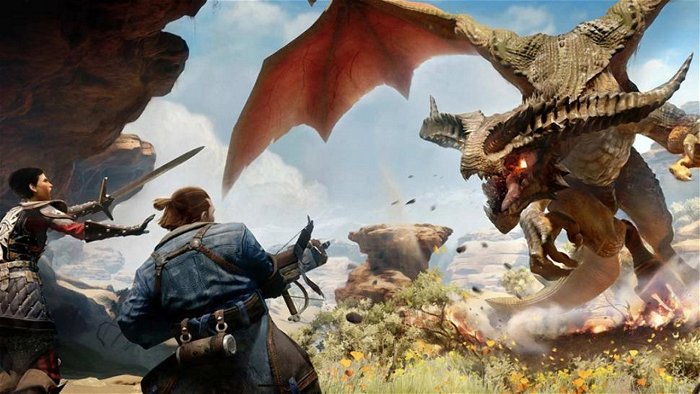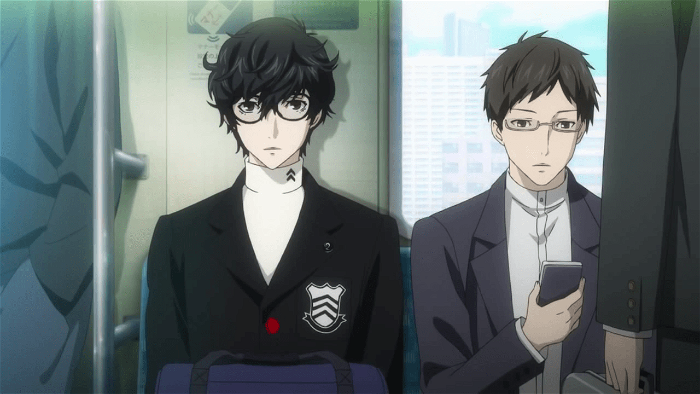In the days of the NES, Genesis, and PlayStation 2, Japanese role-playing games (JRPGs) dominated the console space. Western PC gamers enjoyed titles like Jade Empire, Baldur’s Gate, and the Ultima series. Still, they lacked the quirky charm and unique concepts of Japanese console RPGs like Final Fantasy and Persona. For years, this distinction between PC and console gaming was clear, with JRPGs reigning supreme in the latter.
However, in recent years, the tables have turned. Western, PC-oriented developers have produced some of the best console RPGs, such as Dragon Age: Inquisition and The Witcher III: Wild Hunt. In contrast, the most significant JRPG release for the current generation is an HD remaster of Final Fantasy X. What led to this surprising shift in console RPG dominance?
The HD Era and Japanese Developers’ Struggles
Two primary factors contributed to this change: the Japanese industry’s unpreparedness for the HD era and Microsoft’s entry into the console space. The transition to high-definition graphics during the PlayStation 3 and Xbox 360 era was a significant challenge for the entire gaming industry, but Japanese developers faced the most significant hurdles. Among the hardest hit was industry giant Square Enix, which struggled with the demands of HD graphics on their workflow.
Developing games with HD graphics required a fundamental shift in production processes, and Square Enix found itself overwhelmed. This struggle led to the extended development time of their flagship title, Final Fantasy XIII, which took an astonishing six years to complete. This protracted development cycle contrasted with other games of the time, showcasing Square Enix’s difficulties in navigating the HD era.
Additionally, Square Enix’s challenges extended beyond the lengthy production of Final Fantasy XIII. Other highly anticipated titles, such as Kingdom Hearts and Final Fantasy Versus XIII, failed to materialize during the PlayStation 3 and Xbox 360 console generations. These missed opportunities impacted the company’s bottom line and left fans disappointed and questioning the future of their beloved franchises.
The Japanese gaming industry’s struggle to adapt to the demands of high-definition graphics during the PlayStation 3 and Xbox 360 era had far-reaching consequences. While the entire industry faced challenges during this transition, the experience of Square Enix highlights the particular difficulties encountered by Japanese developers. These struggles contributed to the shift in RPG dominance on consoles, paving the way for the rise of Western role-playing video games in the years to come.
It’s not surprising that with big Japanese game studios like Square Enix missing the boat, smaller ones like Atlus would too, which is why the much loved Shin Megami Tensei Persona series also skipped out on the generation entirely. HD games were incredibly expensive and time-consuming to make with established Japanese development practices. Just ask Sony how The Last Guardian is doing to get a better idea. As a result, there was a significant drop in the release of big-budget or “flagship” JRPG franchises in the last generation.
The Impact of Microsoft’s Entry into the Console Space
The precarious state of the console RPG landscape was further exacerbated by Microsoft’s foray into Western RPGs during the previous console generation. As a newcomer to the console market with the original Xbox, Microsoft lacked the established relationships with JRPG studios that both Nintendo and Sony had cultivated over the years. Consequently, Microsoft turned to homegrown talent, partnering with studios such as BioWare to create exceptional console RPGs like Star Wars: Knights of the Old Republic.
In addition to harnessing the prowess of Western RPG developers, Microsoft also secured the exclusive release of the JRPG Blue Dragon for the Xbox platform. This strategic move demonstrated Microsoft’s commitment to diversifying its RPG offerings and catering to a broader audience of gamers. The combined efforts of Microsoft to support both Western and Japanese RPGs on its platform further contributed to the shift in console RPG dominance, paving the way for the rise of Western RPGs in subsequent console generations.

In the Xbox 360 generation, they would be even more aggressive, bringing in not just BioWare with Mass Effect but Bethesda Game Studios with the Elder Scrolls and Fallout series, as well as CD Projekt with The Witcher II. There was a void in the RPG genre because Japanese developers were struggling with the new hardware. Western developers filled it, spilling over to take advantage of the “power vacuum” on the PS3 as well.
Essentially, the immense profitability of games on a global level, with increasing demands on manpower, resources and deadlines, showed Western developers rising to the occasion while the Japanese developers floundered badly. Western RPGs were able to move in to fill that void left by Japanese studios that new required over five years to create a game, and because of their constant iteration on the user interface, they created game systems with more mainstream appeal, rather than the more complex negotiation of menus that JRPGs had traditionally adhered to.
As a result, first-person games like The Elder Scrolls came to the fore and introduced open-world mechanics, while third-person games like Dragon Age introduced hybrid turn-based mechanics. Even The Witcher switched up combat with an action-based system that still required more deliberate timing and pacing, similar to Japanese action RPGs like the Dark Souls games or Bloodborne.
We now live in a console generation where the Western RPG is dominant, and the JRPG is niche. Certainly, Final Fantasy XV and Persona 5 are on the horizon, but they are rarities. In past console generations, release schedules were chock full of JRPGs from many different companies. Now, only Bandai Namco’s Tales series is released with any regularity on consoles, and most JRPGs have moved to the 3DS or Vita.
Meanwhile, the PS4 and Xbox One are looking forward to another Mass Effect, a Cyberpunk 2077 game, more Fallout and Elder Scrolls sequels, and quite likely another Dragon Age game in the future. On consoles, Western RPGs are here to stay and dominate. JRPGs aren’t going away, but they’re unlikely to take the top spot in RPGs unless Western publishers lose interest in the genre. It’s only through neglect that the Japanese industry has another chance at the top.







